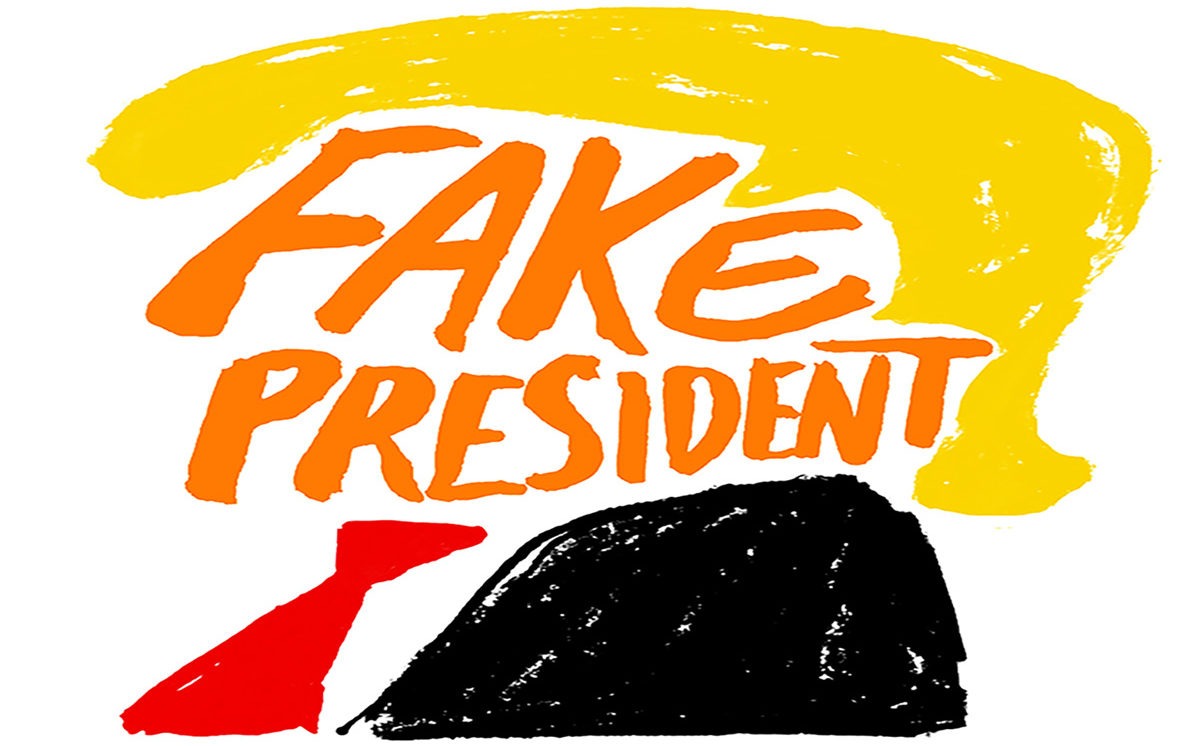Ever since the current occupant of the White House blamed mainstream journalists for generating fake news, some of us have countered by blaming social media and armies of trolls and bots (robotic tweets). But it’s as silly to blame social media for causing fake news as it would be to blame the internal combustion engine for causing road rage. Computers and cars do accelerate derangement on our information and transportation highways, but they haven’t caused it.
The mass-market tabloid press fomented the Spanish-American War on dubious pretexts in 1898, and from this point on, powerful media corporations, driven to boost profits by fanning the resentments of people who’ve been abused, have sold them stimulants, palliatives, and escapes that undermine the strengths that republican freedom requires. Fake news has been one of the more toxic products of that long-running effort to turn harried citizens into impulse-driven consumers who grasp at fictions and strongmen.
President Trump, a civically mindless financer of casinos and a predatory self-marketer, grasps at social media, too, because he’s a casualty as well as a carrier of the civic decay driven by decades of casino-like financing and duplicitous, intrusive marketing. Thanks to Citizens United, that profit-driven marketing has invaded the deliberations of even the soberer public about how to regulate moneymaking itself and how to secure workplace rights.
You needn’t be a Marxist (I’m not) to feel the force of this shift in power. Nor need you share Edward Gibbon’s view that history is “little more than the register of the crimes, follies, and misfortunes of mankind” to see that republics, from ancient Rome to Weimar Germany and our own, have been stampeded from time to time, sometimes fatally, by demagogues who peddled fake news, long before digitalization made Trump our Tweeter-in-Chief and countless online supporters his “press corps.”
In the 1950s, Senator Joseph McCarthy’s anti-Communist crusade turned kernels of truth into forests of fake news, purveyed by real newspapers, ruining the careers of thousands of innocents, stifling thoughtful critics, and warping public understanding of more serious challenges facing the republic.
In 1920 the New Republic ran “A Test of the News,” a special supplement to the magazine (published soon after as the book Liberty and the News) by Walter Lippmann and Charles Merz showing that in the three and a half years since the Bolshevik revolution, The New York Times had reported “not what was, but what men wished to see.” On ninety-one occasions, the paper had reported that the new regime was on the verge of collapse, although the only real “censor and . . . propagandist were hope and fear in the minds of reporters and editors” themselves.
In 1977, Rupert Murdoch used the once-liberal New York Post to mug and titillate the city’s body politic daily, beginning with a lurid series on the murderer “Son of Sam.” In 2016, his Post was a virtual press office for Trump’s campaign, and he got so personally cozy with Trump that, even though he’s now disenchanted, recent reports that he never wanted Trump to win strain credulity. If Murdoch wants us to believe them, it suggests that Very Powerful People who thought they could control Trump would rather get rid of him.
In 2003, Murdoch’s Fox News convinced many Americans who weren’t reliant on social media that Saddam Hussein and Al Qaeda had collaborated on September 11 and that Saddam wielded weapons of mass destruction. Not all “high end” news organizations were innocent of spreading such fake news, but the Program on International Policy Attitudes found that, as The New York Times columnist Paul Krugman noted, only 23 percent of PBS and NPR audiences “believed any of these untrue things, but the number was 80 percent among those relying primarily on Fox News.”
In 1976, the movie Network anticipated the assaults on real news by Murdoch’s and most other media conglomerates by depicting the profit-driven derangement of a fictional network’s (“UBS”) news division. “I want angry shows,” a UBS manager tells her staff, defending veteran news anchor Howard Beale, who’s been unraveling on the air, as “a mad prophet denouncing the hypocrisies of our time.” Beale rouses viewers to shout, “I’m mad as hell and I’m not going to take it anymore!”—even as he herds them like sheep. Trump and Fox have done much the same in real life.
Media conglomerates that house most journalism and internet access wave First Amendment banners while inundating audiences not mainly with artists’ art and serious political appeals, however offensive, but with messages from disembodied announcers and corporate “sensors” (not censors) that bypass our brains and hearts on their way to our lower viscera and wallets.
This commercial groping, goosing, tracking, and fleecing of our dignity and material resources isn’t malevolent so much as mindless, and is perhaps even more dangerous in generating a demoralizing sense of society that’s been accompanied by rises in violent family breakdowns, lethal rampages at schools and other public places, and police killings of unarmed people. Profit-hungry journalism is drawn to such horrors like a moth to a flame as its media-conglomerate owners bombard us with gladiatorial sports and degrading entertainments, including reality television whose vulgarity and opportunism outdoes even The Apprentice.
These lies and exaggerations sell by tapping ressentiment, the French term for a public psychopathology whose gnawing humiliations and hatreds many people nurse in private until they accumulate and erupt in public outbursts that become news—Tea Partiers’ confrontations with members of Congress, Trump campaign crowds roaring for a strongman to lead them on vengeful crusades—sometimes achieving a fleeting brilliance before collapsing, tragicomically or catastrophically, into the fearful, willful ignorance that generates them.
Ressentiment’s need for “safe” targets—poor blacks, campus “snowflakes,” migrant workers, Muslims—seduces more Americans than we’d like to think.
Others addict or mutilate themselves, as if they’d do anything but challenge the seemingly omnipotent engines of substandard employment and escapist fantasies that intensify civic decay.
People gripped by such pressures find fake news’ fabrications irresistible, as George Soros, who saw it happen as a young man in Hungary, explained in 2011 in an assessment of “the power of Orwell’s Newspeak” and “the aversion of the public to facing harsh realities.” Fox News commentator Glenn Beck had targeted Soros in a three-part series, “The Puppet Master,” that traded implicitly in the kind of anti-Semitic stereotypes that have recently found explicit expression against him in his native Hungary, whose strongman Viktor Orban is hostile to his Open Society Institute and its exemplary Central European University.
“On the one hand,” Soros writes, “Newspeak is extremely difficult to contradict because it incorporates and thereby preempts its own contradiction, as when Fox News calls itself fair and balanced. Another trick is to accuse your opponent of the behavior of which you are guilty, like Fox News accusing me of being the puppet master of a media empire. Facts do not provide any protection, and rejecting an accusation may serve to have it repeated; but ignoring it can be very costly. . . . On the other hand, the pursuit of truth has lost much of its appeal.”
Here’s why: In 1941, Francis Hackett, literary editor of The New Republic, in a remarkable but now forgotten book, What Mein Kampf Means for America, noted that people who feel humiliated and dispossessed are easy prey for orchestrators of “the casual fact, the creative imagination, the will to believe, and, out of these three elements, a counterfeit reality to which there was a violent, instinctive response. For it is clear enough that under certain conditions men respond as powerfully to fiction as they do to realities, and that in many cases they help to create the very fictions to which they respond. The fiction is taken for truth because the fiction is badly needed.”
Do today’s social media accelerate the spread of fictions faster than anything before? “Right before our eyes, like something on the screen, the vast social fabric [of the republic] has crumbled. . . . On its ruins, with the speed of a world’s fair, [the leader] and his confederates have run up a political front of startling and provocative modernity. . . . [His movement’s] hand has been so much quicker than the democratic eye, and for his violence we have so little precedent.” But this isn’t Soros or Krugman writing about Trump and his followers. It’s Francis Hackett, describing Hitler and the Nazis, in 1941.
When ressentiment is only starting to gather strength, it assumes disguises of civility to escape decisive reproach from a polity that isn’t yet too weakened to ward off the disease. Fox’s “fair and balanced” line a decade ago was both a concession to public strength and a diabolical wink to its early devotees.
Ressentiment’s gloves really come off once there are enough angry little-big men and women to step out together en masse, with a Sarah Palin or a Glenn Beck. And now Trump is leading them across a Rubicon, vowing to mow down anyone and anything in their way.
Some of us who detest fake news have only compounded Trump supporters’ yearning for it with our disdainful turns of phrase and our simple civic inattention or empty sighs at depictions of their distress. If Trump had been a bit more grandiloquent in 2016, he might have warned us that “all great movements are movements of the people, are volcanic eruptions of human passions and spiritual sensations, stirred . . . by . . . the torch of the word thrown into the masses, and are not the lemonade-like outpourings of aestheticizing literati and drawing-room heroes.”
But those words were written by Hitler himself, in Mein Kampf, in 1926. Historical analogies can be facile and dangerous, but this one reminds us that social media aren’t to blame for the speed and power of ressentiment and the fictions it rides to power.
Jim Sleeper, a former columnist for The New York Daily News and opinion editor at New York Newsday, is a lecturer in political science at Yale, where he teaches a seminar on “Journalism, Liberalism, and Democracy.”







Excellent analysis, and stunning, especially the last two paragraphs.
Has Jim Sleeper ever heard of Godwin’s Law?